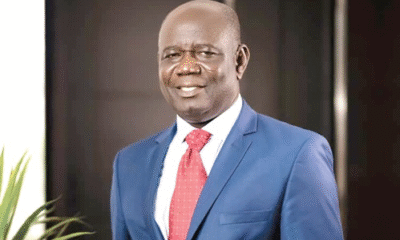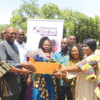The National Service Authority (NSA), formerly known as the National Service Scheme (NSS), has released PIN codes for 3,590 trained nurses and midwives from accredited Nursing and Midwifery Training Institutions across the country.
These PIN codes are crucial for the graduates to begin their mandatory national service for the 2024/2025 service year. The registration process has already started and will run until October 18, 2024, with no extension available.
Eligible graduates can access their PIN codes by visiting the NSA website, entering their school index number, and their date of birth. Once they have the PIN code, they must proceed to any ADB Bank branch nationwide to make a payment of GH¢40.00, or alternatively, they can use the MTN MoMo platform to pay GH¢41.00.
This payment will activate their PIN code, allowing them to complete the registration process.
The current release of PIN codes follows an earlier distribution in April 2024, where 20,289 nurses and midwives were also given access to their PIN codes for the same 2024/2025 service year.
The NSA has urged all prospective service personnel to carefully follow the registration instructions to avoid errors that could hinder their deployment.
The National Service Authority plays a critical role in managing the national service program in Ghana.
Initially established in 1973 as the National Service Scheme, the program’s goal was to provide tertiary graduates with an opportunity to contribute to national development by engaging in service in various sectors, including education, healthcare, agriculture, and infrastructure.
Over the years, the NSS has expanded its scope, and today, it encompasses a wide range of sectors, with thousands of young professionals placed across the country to gain practical experience.
The scheme was originally designed to help tackle the country’s human resource challenges in key sectors while promoting national unity and development.
Its focus has gradually shifted towards preparing young Ghanaians for the workforce by developing their skills and fostering a sense of civic responsibility.
National service personnel are expected to contribute to the country’s development by applying the knowledge and skills they have gained during their tertiary education.
Each year, the NSA manages the enlistment of thousands of graduates, placing them in various public service roles across Ghana.
The registration process for national service is crucial for ensuring that graduates are assigned to service locations where they are needed most, whether in rural communities or urban centres.
The scheme also supports graduates in acquiring professional skills that will help them in their careers after completing their service year.
The current round of enrolment for nursing and midwifery graduates follows the established pattern set by the NSA.
After the initial release of PIN codes for over 20,000 nurses in April, the second batch is now undergoing the registration process.
The final date for enrolment is October 18, 2024, and the NSA has made it clear that there will be no extension.
Graduates are advised to complete the process on time to avoid any delays in their deployment.
In its statement, the NSA emphasized the importance of accurate and timely registration. Errors during the process could cause problems in the final deployment phase, delaying or disrupting the assignment of personnel to service locations.
As the deadline approaches, the NSA continues to urge all prospective national service personnel to ensure their details are correctly entered and that the activation process is fully completed.
With the release of this second batch of PIN codes, the NSA reaffirms its commitment to managing the smooth operation of the national service program, enabling young graduates to make valuable contributions to the development of the country.
The registration process is just the first step in what will be a year-long journey for these nurses and midwives, helping them to apply their education in real-world settings and gain experience in their respective fields.



















